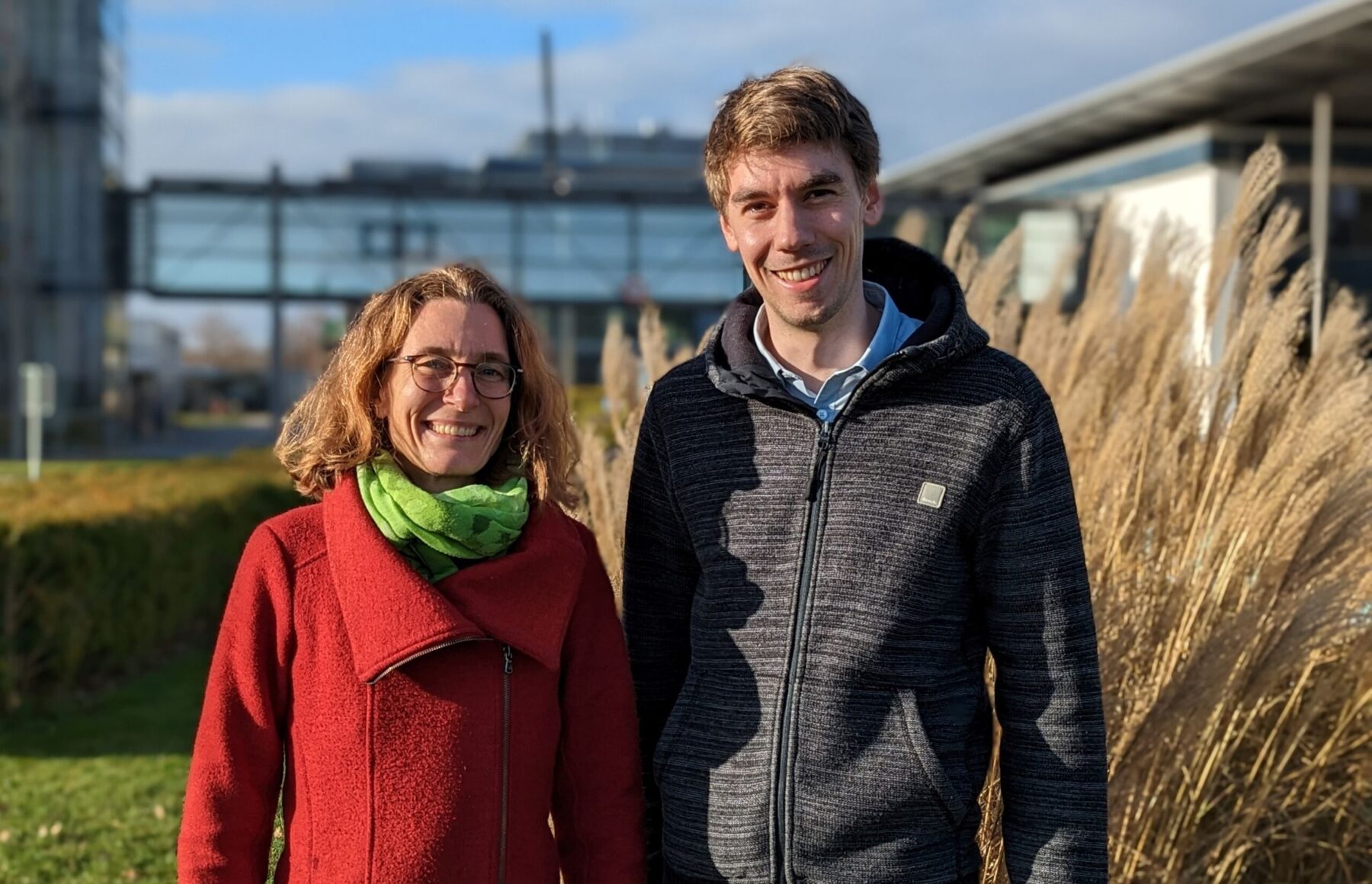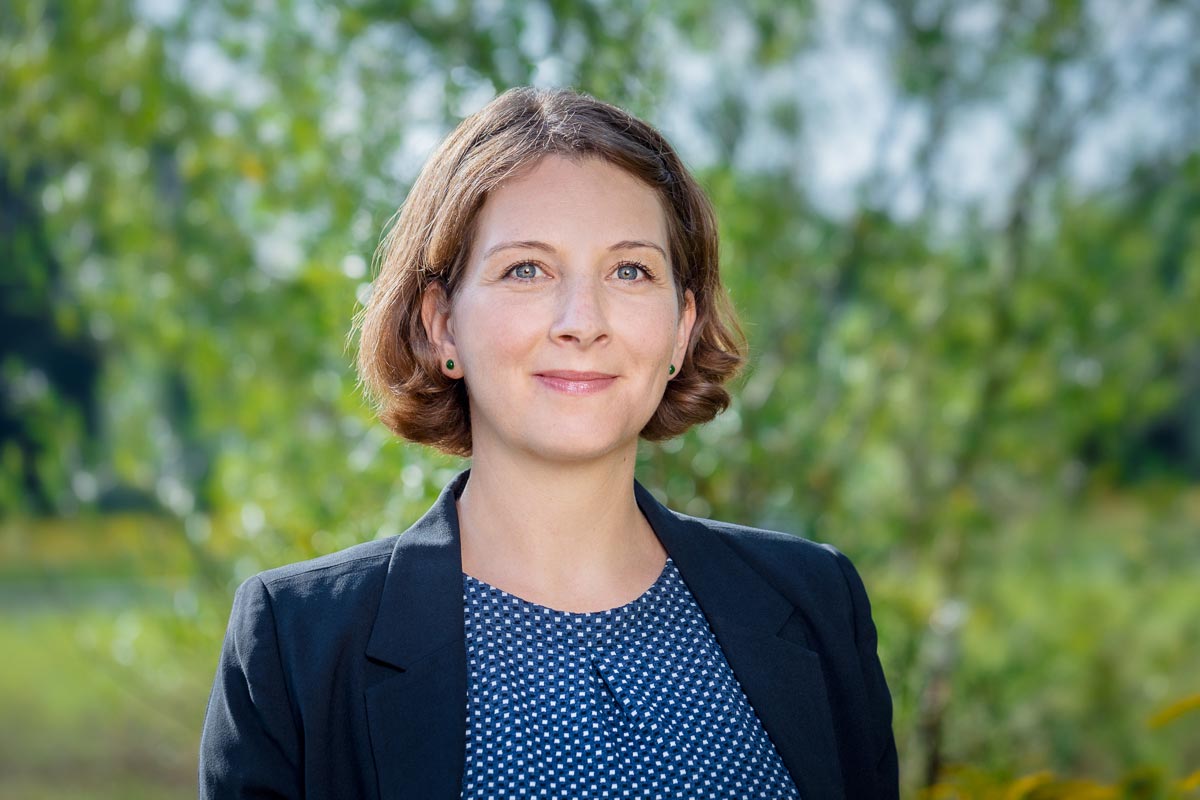
3 questions with POROUS: “The opportunity to contribute to the health of many people around the world is our driver. It is also what convinced the jury”
For its work in early osteoporosis detection, poroUS GmbH, based in Potsdam Science Park, is receiving funding of €2.5 million through the European Innovation Council Accelerator Grant. In our interview, CEO Julia Eschenbrenner and CTO Jonas Massmann explain how they managed to stand out during the application process and what opportunities the funding will provide them in the coming years.
Mrs. Eschenbrenner, Mr. Massmann, the European Innovation Council Accelerator Grant, just awarded your company, POROUS GmbH, a funding of 2.5 million euros. The grant’s selection process is considered highly competitive, with only 75 companies having been able to qualify themselves out of more than 1,000 applications. What did you do to convince the jury to fund your work?
Julia Eschenbrenner: First, we made sure to meet all of the grant’s formal criteria. That may sound trivial, but is, actually, very crucial. For reasons of fairness alone, every funding program has formal requirements that all applying projects must meet. The jury bases its decision on this list of criteria and uses it to scrutinize each application. To even be considered for funding in the first place, projects have to fulfill all of these requirements. So, an important part of our work during this multi-stage application process was to be particularly clear and convincing on why we meet all of these demands. That’s how we laid the groundwork that allowed the jury to decide in our favor.
Jonas Massmann: In addition, the relevance and broad impact of our area of work certainly had a positive impact. Osteoporosis is a widespread disease that affects millions of people around the world. For a long time, early diagnosis was considered virtually impossible by conventional means. Our patented, intelligent algorithms that use quantitative ultrasound technology allow us to measure the quality of the outer bone cortex at the microscopic pore level and without radiation exposure. This is a true novelty in the field and enables new forms of diagnostics which will help to detect osteoporosis at an early stage in the future. This opportunity to contribute to the health of many people around the world is our driver. It is also what convinced the jury.
What opportunities does the funding provide for POROUS GmbH? How will your work change over the next few years? Will you set new priorities?
Jonas Massmann: A significant part of our attention so far has been on developing our algorithms and measurement methods. This line of our work will, of course, continue in the future. We are currently finalizing the first prototypes of our technology and preparing them for market implementation. The funding will allow us to send the first devices to selected clinics. With this, we are ready to take the next big step …
Julia Eschenbrenner: … which will be clinical validation. Over the next few years, we will be testing our technology in a large-scale, multicenter study. Recruiting the more than 1,500 study participants will be challenging. However, due to our special proximity to the Charité Berlin, which will also participate as one of several study centers, we are confident that we will be able to succeed.
Like most start-ups in the Potsdam Science Park, POROUS GmbH is characterized by its proximity to science. What makes working in such a company so special?
Jonas Massmann: Coming from a scientific background usually means that you are trying your hands on entrepreneurship for the first time, and that it will take you some time to gain all the relevant and necessary experience. All startups have to overcome many hurdles before they can begin with the actual entrepreneurial work – that is, the development, production set up and marketing of their products. Additionally, in our field, medical technology, there are many special requirements, specifically when it comes to questions of quality management or certification. So, the learning curve is quite unique.
Julia Eschenbrenner: Another gratification that only exists in science-related companies concerns the topic of translation, meaning the transfer of scientific findings into practice. For many of our colleagues in research, this idea unfortunately remains mostly abstract. Even if they work with a clear, practical objective, its implementation is rarely successful, and if it is, it is usually taken over by others. This is different in cases like poroUS, which started as a spin-off from the Charité. From the very beginning, our team has helped to develop the technology at the core of our work. Now, we are given the opportunity to bring it to market maturity ourselves and make it available to the public. That is a very strong motivation.
Mrs. Eschenbrenner, Mr. Massmann, thank you for the interview.
This blog and the projects carried out by Standortmanagement Golm GmbH at Potsdam Science Park are funded by the European Regional Development Fund (ERDF) and the Federal State of Brandenburg.
Contact

Julia Hinz
Site marketing
julia.hinz@potsdam-sciencepark.de + 49 331 237 351 109